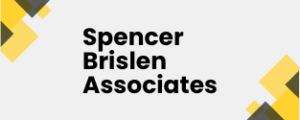What does an actuarial consultant do?
Working for a number of varied clients I often find it difficult to define what actuaries actually do. This is because no two clients are the same; they all work in different ways and face different problems, making it important for us to give a tailored service.
For me it was important to get into consultancy, rather than other actuarial roles, because I wanted to build relationships with clients and exercise both my technical and ‘softer’ skills. The main challenge this type of work presents is that complex issues need to be communicated in a simple, straightforward way to clients, which I really enjoy doing.
In the 18 months I’ve been at Hymans Robertson I’ve been involved with pension scheme valuations, corporate accounting disclosures, preparation of reports and communicating directly with clients, to name just a few things.
It’s important to stress that no prior knowledge is required so if, like me, you hadn’t heard of the profession before you read this booklet, don’t worry, you’ll learn everything you need to know on the job as well as through comprehensive training and support from your manager and team.
What are the best bits?
The variety of the job means that there’s exposure to many different projects and fields from the outset. This gives a great opportunity to find areas you’re interested in. There’s also the option to change the line of work you’re involved in so there’s always something challenging and new!
Direct client contact from the outset has allowed me to build strong relationships with clients and further sharpen and apply my problem solving skills to develop bespoke solutions to unique problems. The work environment here is always very supportive; everyone is very happy to help and there’s always someone to answer any of my stupid questions. I feel particularly lucky to be part of such a close team, especially as there are always a few social events too!
What’s the worst bit?
All trainee actuaries sit a series of exams before they become fully qualified. This means at least another three years of studying. While these exams are tough, Hymans Robertson are very supportive, allowing you weekly study days, relevant study materials and tutorials. I also have a study mentor to support me every step of the way. There’s a community of other actuarial students around you too, so you’re never alone.




